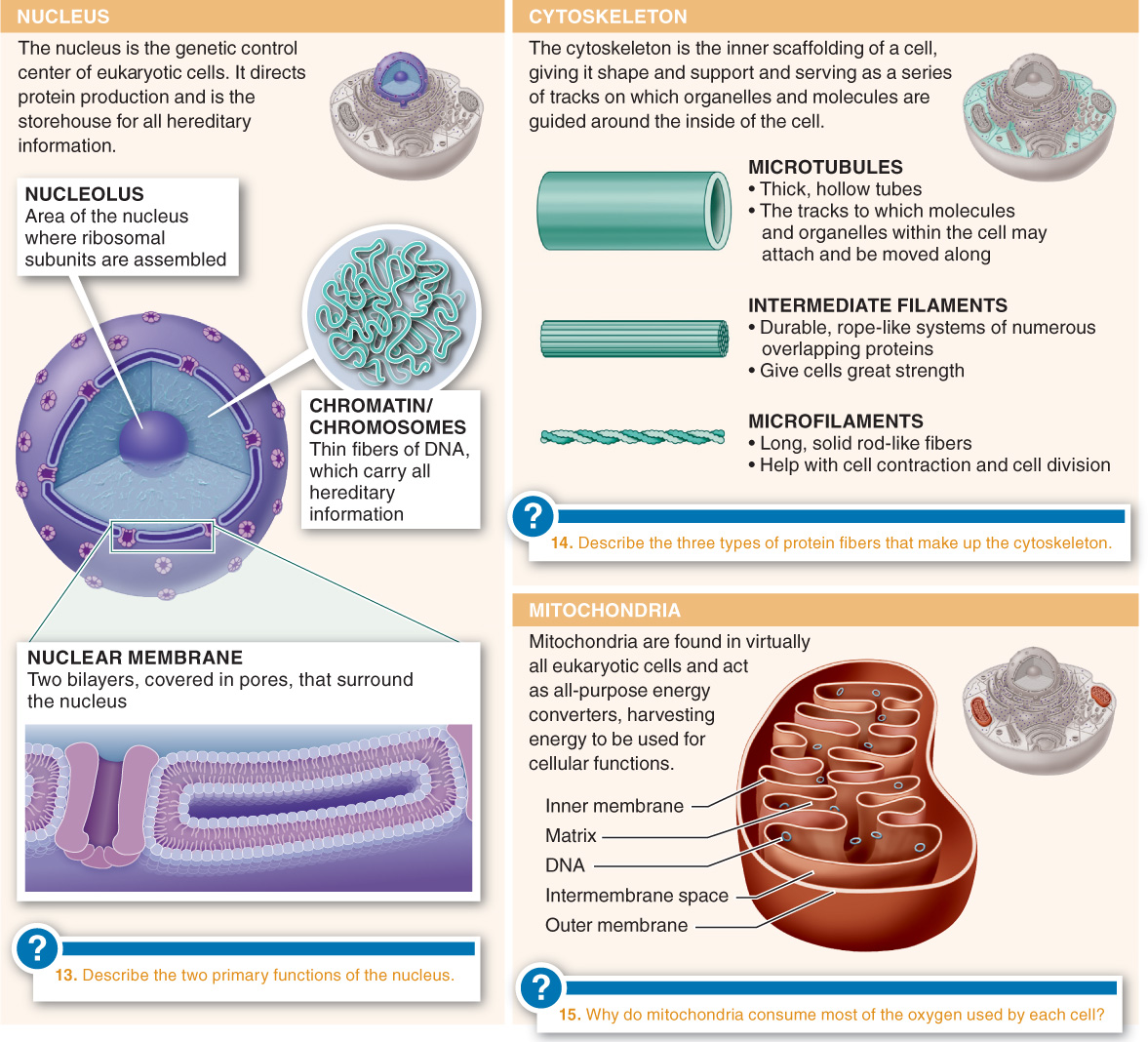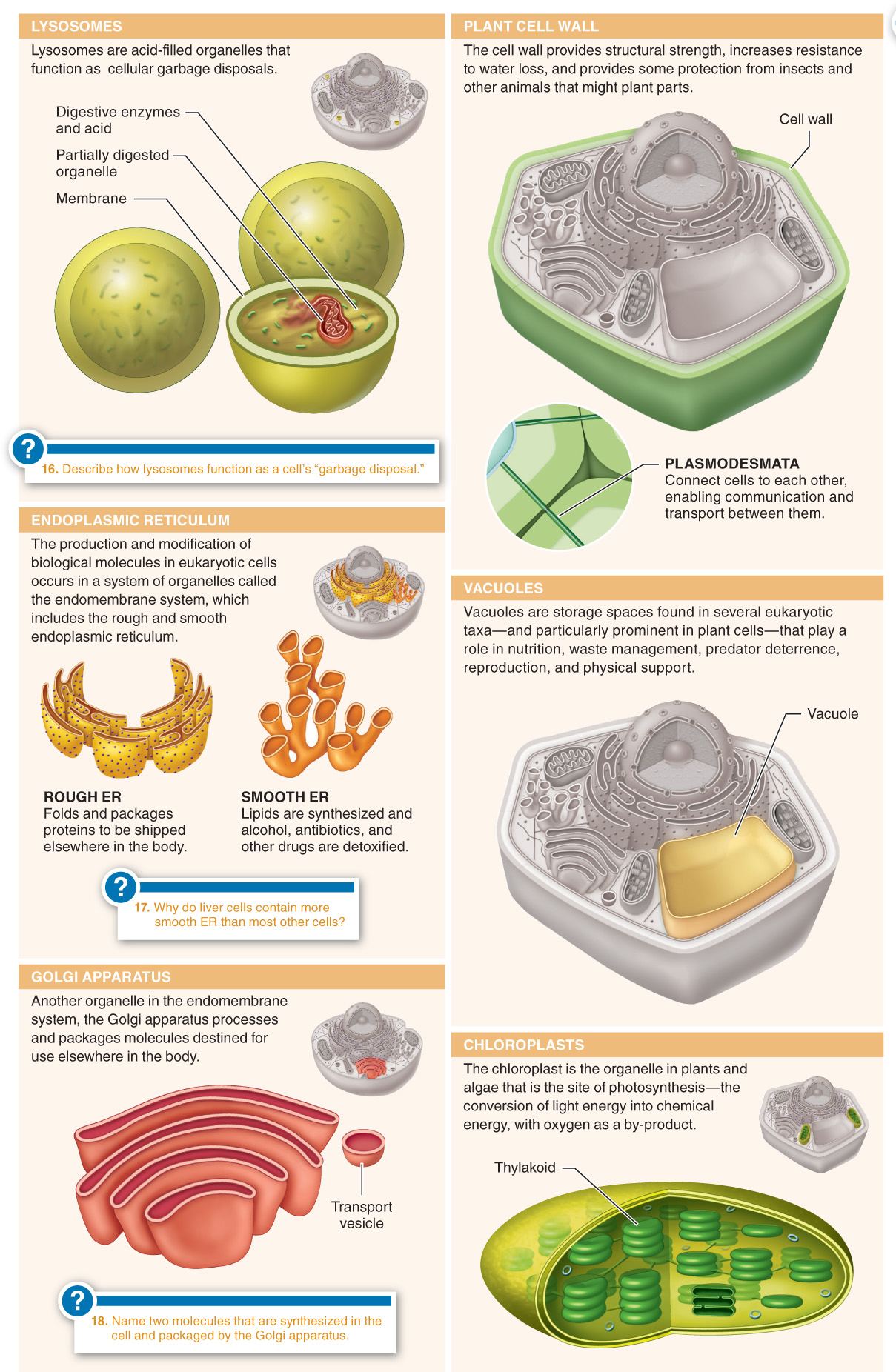3.13–3.22
3.13–Nine important landmarks distinguish eukaryotic cells.
Specialized structures in cells perform specific life-

133

Q
Which of the following organelles is not present in animal cells?
- a) lysosome
- b) Golgi apparatus
- c) rough endoplasmic reticulum
- d) mitochondrion
- e) chloroplast

Given that a cell’s structure reflects its function, what function would you predict for a cell with a large Golgi apparatus?
- a) movement
- b) secretion of digestive enzymes
- c) transport of chemical signals
- d) rapid replication of genetic material and coordination of cell division
- e) attachment to bone tissue

Cell walls:
- a) occur only in plant cells.
- b) are not completely solid, having many small pores.
- c) confer less structural support than the plasma membrane.
- d) dissolve when a plant dies.
- e) are made primarily from phospholipids.

Which of the following organelles is not found in both plant and animal cells?
- a) nucleus
- b) rough endoplasmic reticulum
- c) mitochondrion
- d) smooth endoplasmic reticulum
- e) central vacuole

In plant cells, chloroplasts:
- a) serve the same purpose that mitochondria serve in animal cells.
- b) are the site of conversion of light energy into chemical energy.
- c) play an important role in the breakdown of plant toxins.
- d) have their own linear strands of DNA.
- e) Both b) and d) are correct.
